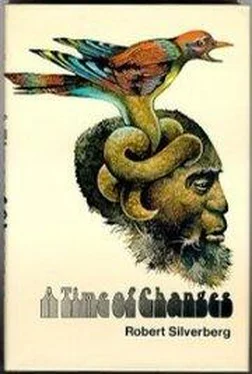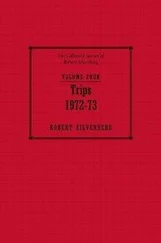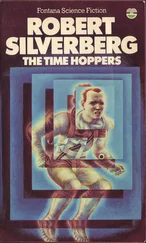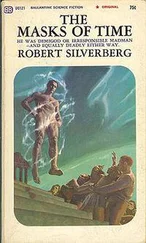Robert Silverberg - A Time of Changes
Здесь есть возможность читать онлайн «Robert Silverberg - A Time of Changes» весь текст электронной книги совершенно бесплатно (целиком полную версию без сокращений). В некоторых случаях можно слушать аудио, скачать через торрент в формате fb2 и присутствует краткое содержание. Год выпуска: 1971, Издательство: Doubleday, Жанр: Социально-психологическая фантастика, на английском языке. Описание произведения, (предисловие) а так же отзывы посетителей доступны на портале библиотеки ЛибКат.
- Название:A Time of Changes
- Автор:
- Издательство:Doubleday
- Жанр:
- Год:1971
- ISBN:нет данных
- Рейтинг книги:4 / 5. Голосов: 1
-
Избранное:Добавить в избранное
- Отзывы:
-
Ваша оценка:
- 80
- 1
- 2
- 3
- 4
- 5
A Time of Changes: краткое содержание, описание и аннотация
Предлагаем к чтению аннотацию, описание, краткое содержание или предисловие (зависит от того, что написал сам автор книги «A Time of Changes»). Если вы не нашли необходимую информацию о книге — напишите в комментариях, мы постараемся отыскать её.
A Time of Changes — читать онлайн бесплатно полную книгу (весь текст) целиком
Ниже представлен текст книги, разбитый по страницам. Система сохранения места последней прочитанной страницы, позволяет с удобством читать онлайн бесплатно книгу «A Time of Changes», без необходимости каждый раз заново искать на чём Вы остановились. Поставьте закладку, и сможете в любой момент перейти на страницу, на которой закончили чтение.
Интервал:
Закладка:
51
In those weeks I took many voyages of exploration into unknown lands. Friends, strangers, casual acquaintances, a mistress: companions on strange journeys. But through all the early phase of my time of changes I said not a word to Halum about the drug. To share it with her had been my original goal, that had brought the drug to my lips in the first place. Yet I feared to approach her. It was cowardice that kept me back: what if, by coming to know me too well, she ceased to love me?
52
Several times I came close to broaching the subject with her. I held myself back. I did not dare to move toward her. If you wish you may measure my sincerity by my hesitation; how pure, you may ask, was my new creed of openness, if I felt that my bondsister would be above such a communion? But I will not pretend there was any consistency in my thinking then. My liberation from the taboos on selfbaring was a willed thing, not a natural evolution, and I had constantly to battle against the old habits of our custom. Though I talked in “I” and “me” with Schweiz and some of the others with whom I had shared the drug, I was never comfortable in doing so. Vestiges of my broken bonds still crept together to shackle me. I looked at Halum and knew that I loved her, and told myself that the only way to fulfill that love was through the joining of her soul and mine, and in my hand was the powder that would join us. And I did not dare. And I did not dare.
53
The twelfth person with whom I shared the Sumaran drug was my bondbrother Noim. He was in Manneran to spend a week as my guest. Winter had come, bringing snow to Glin, hard rains to Salla, and only fog to Manneran, and northerners needed little prodding to come to our warm province. I had not seen Noim since the summer before, when we had hunted together in the Huishtors. In this last year we had drifted apart somewhat; in a sense Schweiz had come to take Noim’s place in my life, and I no longer had quite the same need for my bondbrother.
Noim now was a wealthy landowner in Salla, having come into the inheritance of the Condorit family as well as the lands of his wife’s kin. In manhood he had become plump, though not fat; his wit and cunning were not hidden deep beneath his new layers of flesh. He had a sleek, well-oiled look, with dark unblemished skin, full, complacent lips, and round sardonic eyes. Little escaped his attention. Upon arriving at my house he surveyed me with great care, as though counting my teeth and the lines about my eyes, and, after the formal bondbrotherly greetings, after the presentation of his gift and the one he had brought from Stirron, after we had signed the contract of host and guest, Noim said unexpectedly, “Are you in trouble, Kinnall?”
“Why do you ask that?”
“Your face is sharper. You’ve lost weight. Your mouth — you hold it in a quirky grin that doesn’t announce a relaxed man within. Your eyes are red-rimmed and they don’t want to look directly into other eyes. Is anything wrong?”
“These have been the happiest months of one’s life,” I said, a shade too vehemently, perhaps.
Noim ignored my disclaimer. “Are you having problems with Loimel?”
“She goes her way, and one goes his own.”
“Difficulties with the business of the Justiciary, then?”
“Please, Noim, won’t you believe that—”
“Your face has changes inscribed in it,” he said. “Do you deny there have been changes in your life?”
I shrugged. “And if so?”
“Changes for the worse?”
“One does not think so.”
“You’re being evasive, Kinnall. Come: what’s a bondbrother for, if not to share problems?”
“There are no problems,” I insisted.
“Very well.” And he let the matter drop. But I saw him watching me that evening, and again the next day at morning’s meal, studying me, probing me. I could never hide anything from him. We sat over blue wine and talked of the Sallan harvest, talked of Stirron’s new program of reforming the tax structure, talked of the renewed tensions between Salla and Glin, the bloody border raids that had lately cost me the life of a sister. And all the while Noim watched me. Halum dined with us, and we talked of our childhood, and Noim watched me. He flirted with Loimel, but his eyes did not wander from me. The depth and intensity of his concern preyed on me. He would be asking questions of others, soon, trying to get from Halum or from Loimel some notion of what might be bothering me, and he might stir up troublesome curiosities in them that way. I could not let him remain ignorant of the central experience of his bondbrother’s life. Late the second night, when everyone else had retired, I took Noim to my study, and opened the secret place where I stored the white powder, and asked him if he knew anything of the Sumaran drug. He claimed not to have heard of it. Briefly I described its effects to him. His expression darkened; he seemed to draw in on himself. “Do you use this stuff often?” he asked.
“Eleven times thus far.”
“Eleven — why, Kinnall?”
“To learn the nature of one’s own self, through sharing that self with others.”
Noim laughed explosively: it was almost a snort. “Selfbaring, Kinnall?”
“One takes up odd hobbies in one’s middle years.”
“And with whom have you played this game?”
I said, “Their names don’t matter. No one you would know. People of Manneran, those with some adventure in their souls, those who are willing to take risks.”
“Loimel?”
Now it was my turn to snort. “Never! She knows nothing of this at all.”
“Halum, then?”
I shook my head. “One wishes one had the courage to approach Halum. So far one has concealed everything from her. One fears she’s too virginal, too easily shocked. It’s sad, isn’t it, Noim, when one has to hide something as exciting as this, as wonderfully rewarding, from one’s bondsister.”
“From one’s bondbrother too,” he observed testily.
“You would have been told in time,” I said. “You would have been offered your chance to experience the communion.”
His eyes flashed. “Do you think I’d want it?”
His deliberate obscenity earned only a faint smile from me. “One hopes one’s bondbrother will share all of one’s experiences. At present the drug opens a gulf between us. One has gone again and again to a place you have never visited. Do you see, Noim?”
Noim saw. He was tempted; he hovered at the edge of the abyss; he chewed his lips and tugged at his earlobes, and everything that passed across his mind was as transparent to me as if we had already shared the Sumaran powder. For my sake he was uneasy, knowing that I had seriously strayed from the Covenant and might soon find myself in grave spiritual and legal trouble. For his own sake he was gnawed by curiosity, aware that selfbaring with one’s bondbrother was no great sin and half-eager to know the kind of communion he might have with me under the drug. Also his eyes revealed a glint of jealousy, that I comprehended these things at that moment, though I confirmed them later when Noim’s soul was open to me.
We said nothing to one another about these matters for several days. He came with me to my office, and watched in admiration as I dealt with matters of the highest national significance. He saw the clerks bowing in and out of my presence, and also the clerk Ulman, who had had the drug, and whose cool familiarity with me touched off suspicious vibrations in Noim’s sensitive antennae. We visited with Schweiz, and emptied many a flask of good wine, and discussed religious topics in a hearty, earnest, drunken way. (“All my life,” said Schweiz, “has been a quest for plausible reasons to believe in what I know to be irrational.”) Noim noticed that Schweiz did not always observe the grammatical niceties. Another night we dined with a group of Mannerangi nobles in a voluptuous house in the hills overlooking the city: small birdlike men, overdressed and fidgety, and huge handsome young wives. Noim was displeased by these effete dukes and barons with their talk of commerce and jewelry, but he grew more irritable when the chatter turned to the rumor that a mind-unsealing drug from the southern continent was now procurable in the capital. To this I made only polite interjections of surprise; Noim glared at me for my hypocrisy, and even refused a dish of tender Mannerangi brandy, so tight-strung were his nerves. The day after, we went to the Stone Chapel together, not for draining but merely to view the relics of the early times, for Noim had developed antiquarian interests. The drainer Jidd happened to wander through the cloister at his devotions and smiled oddly at me: I saw Noim at once calculating whether! had drawn even the priest into my subversions. A sizzling tension was building in Noim during those days, for he clearly longed to return to the subject of our early conversation, yet could not bring himself to it. I made no move toward reopening that theme. It was Noim who made the move, finally, on the eve of his departure for his home in Salla. “This drug of yours -” he began hoarsely.
Читать дальшеИнтервал:
Закладка:
Похожие книги на «A Time of Changes»
Представляем Вашему вниманию похожие книги на «A Time of Changes» списком для выбора. Мы отобрали схожую по названию и смыслу литературу в надежде предоставить читателям больше вариантов отыскать новые, интересные, ещё непрочитанные произведения.
Обсуждение, отзывы о книге «A Time of Changes» и просто собственные мнения читателей. Оставьте ваши комментарии, напишите, что Вы думаете о произведении, его смысле или главных героях. Укажите что конкретно понравилось, а что нет, и почему Вы так считаете.












